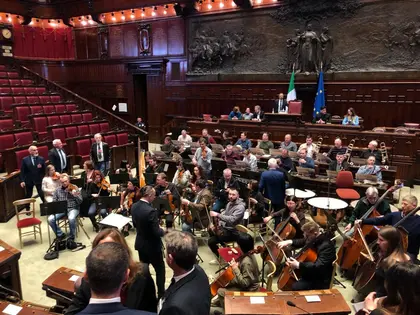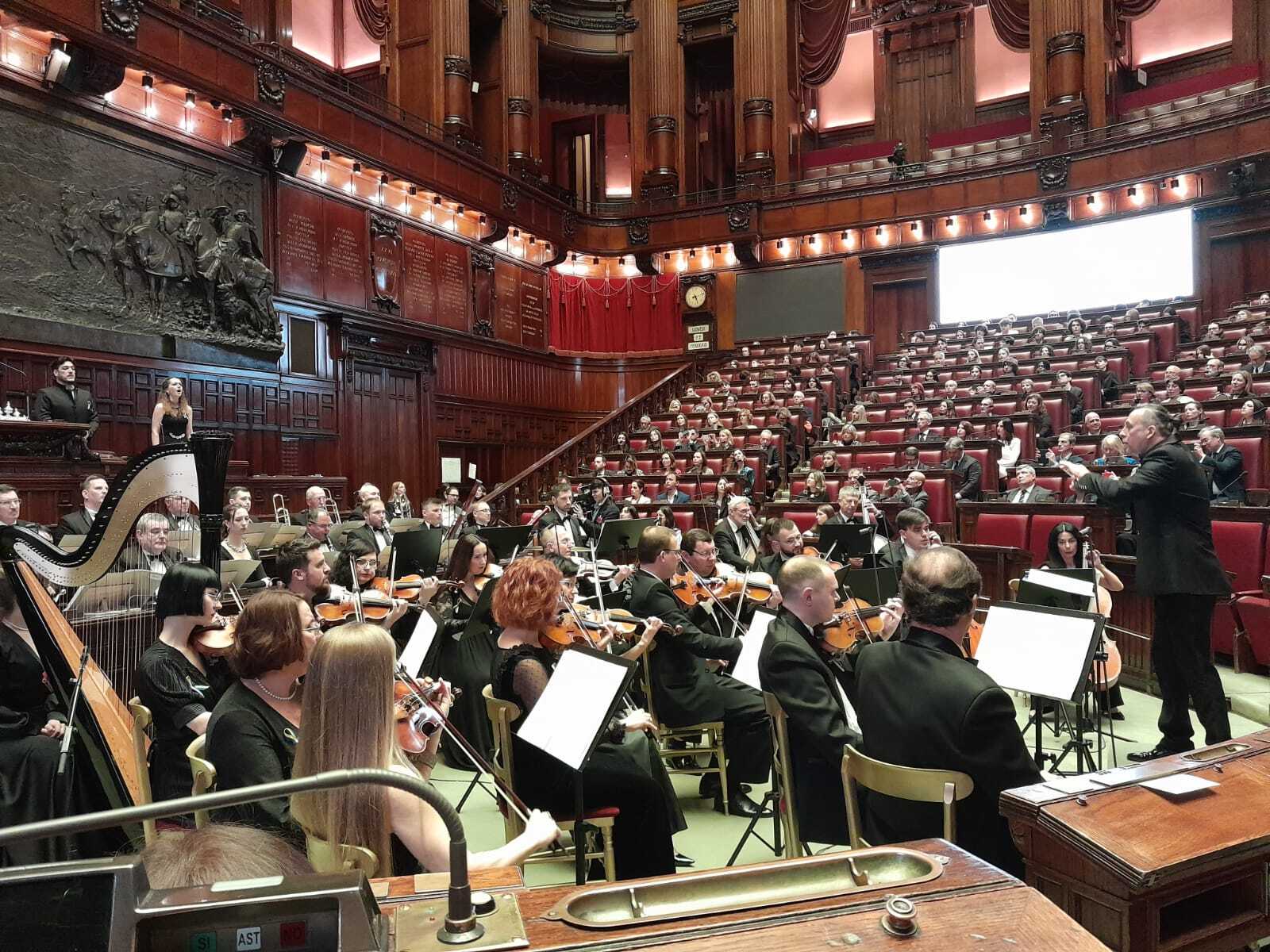To remember two years since the full-scale Russian invasion of Ukraine, on Feb. 22, the Italian Parliament welcomed the Orchestra of the Odesa National Academic Opera and Ballet Theatre along with a delegation from the Verkhovna Rada.
In the most important hall of the Chamber of Deputies, the Hemicycle, the concert “Elegy for Peace,” played live on the Italian national TV Rai3. It was introduced by Lorenzo Fontana, President of the Chamber.
JOIN US ON TELEGRAM
Follow our coverage of the war on the @Kyivpost_official.
In the morning of the same day, there was the first meeting of the Italian-Ukrainian parliamentary cooperation group, chaired by the vice-president of the Chamber Giorgio Mulè for the Memorandum of Understanding signed by the Chamber and the Verkhovna Rada in 2017, to develop cooperation between the Italian and Ukrainian parliaments.
The event’s importance goes beyond music and culture. The orchestra of the Odesa Opera Theatre played in the most emblematic place of Italian politics, the hall of the Hemicycle, where Italian lawmakers discuss laws and vote on government actions. As such, the symbolism of the event is that of Italy’s solidarity and political closeness toward Ukraine, as Fontana said in his initial speech.
The concert of Odesa in Rome. Photo: Ugo Poletti
But there is also the symbolism of Italian music played by the Odesa orchestra. In fact, from its foundation to the present day the Odesa Opera Theatre has had a repertoire mainly of Italian opera music. “Giacomo Puccini, in fact, had a privileged relationship with Ukraine: the soprano Salomea Krusceniski, coming from Ukraine, brought her ‘Madama Butterfly’ to success 120 years ago in the theatre of Brescia,” said Maestro Alberto Veronesi, President of the Promotional Committee of the Puccini Celebrations, which invited the orchestra and sponsored the event.

Zelensky Meets CIA Director William Burns in Ukraine
Finally, the visit of the musical soul of Odesa to Rome is an evocative way to remember the city’s historic relationship with Italy. Indeed, many Italian entrepreneurs and architects went to live in the Black Sea port from its foundation until the Russian Revolution, when Odesa’s economic elite had to flee upon the arrival of the Bolsheviks.
The musical program, centered on the works of Giacomo Puccini (this year marks the centenary of the composer’s death), was opened by the performance of the Italian anthem. In the concert directed by Ihor Chernetsky and performed soloists Hanna Litvinova (soprano), Yulia Tereshchuk (soprano), Hanna Yevtiekhova (mezzo-soprano), Leonid Shoshyn (tenor), Oleksiy Zhmudenko (baritone).
The concert was made possible thanks to the patronage of the Italian Cultural Institute in Ukraine and the Italian Embassy in Kyiv, also to the contribution of the Italian Honorary Consul in Odesa Vladyslav Shtamburg.
You can also highlight the text and press Ctrl + Enter







